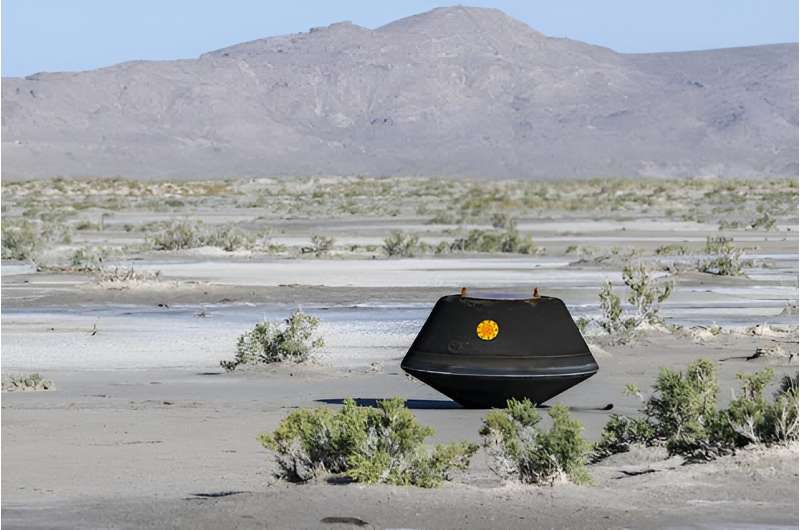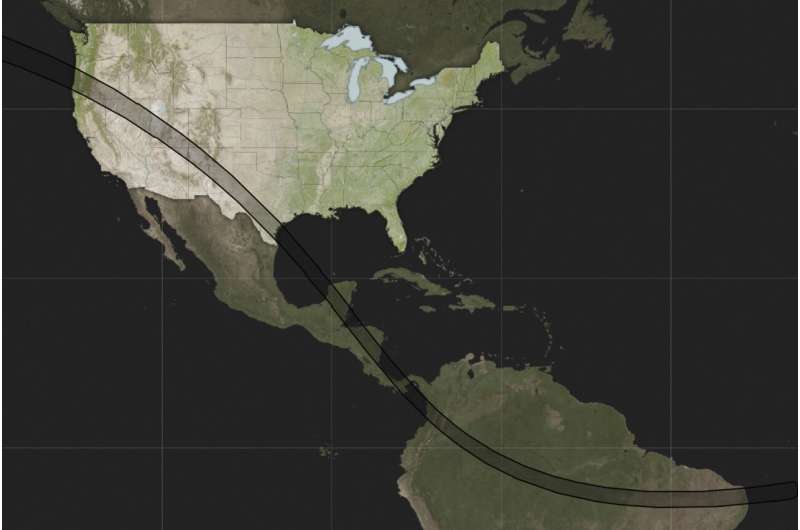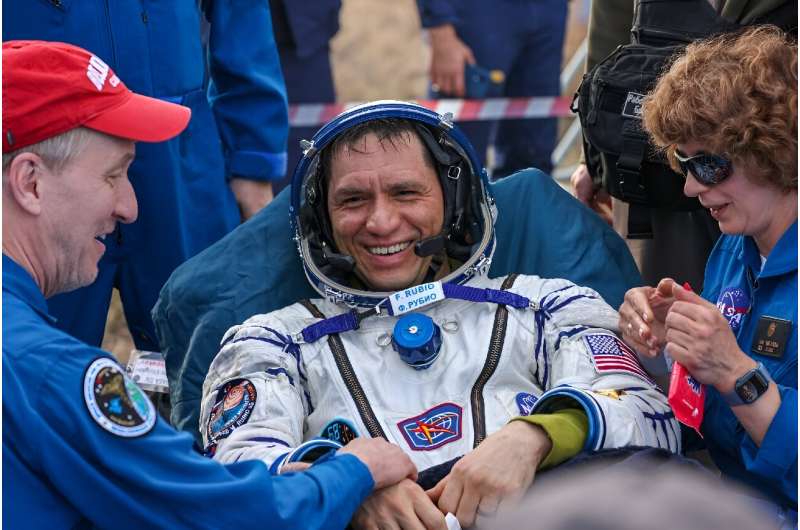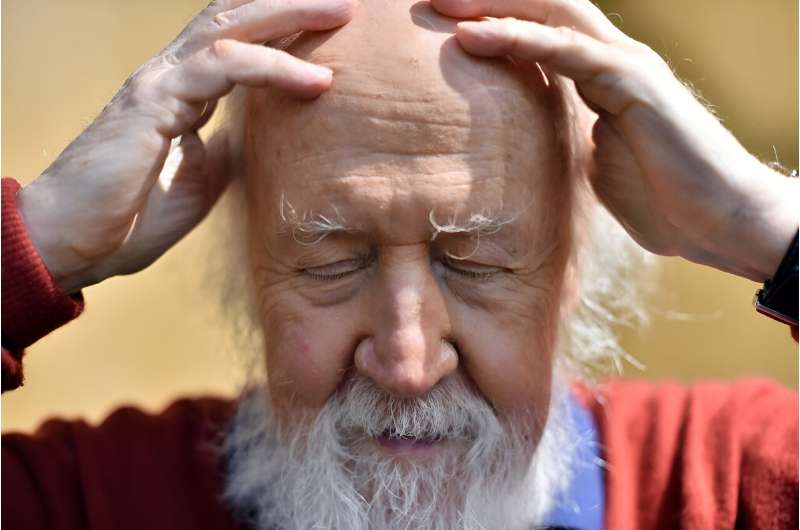
Copernical Team
Accelerating interoperability standards for commercial lunar infrastructure
 Lunar exploration is expanding at a rapid pace, and a robust lunar economy within the next decade is coming quickly into focus. It's clear that many shareable, scalable commercial systems will be needed to support a future lunar ecosystem. Yet a key question remains: How will these systems interface?
Through the Lunar Guidelines for Infrastructure Consortium (LOGIC), DARPA will convene sta
Lunar exploration is expanding at a rapid pace, and a robust lunar economy within the next decade is coming quickly into focus. It's clear that many shareable, scalable commercial systems will be needed to support a future lunar ecosystem. Yet a key question remains: How will these systems interface?
Through the Lunar Guidelines for Infrastructure Consortium (LOGIC), DARPA will convene sta Beyond the Frigid Void: Per Wimmer's Adventures in the Shadows of the Known
 Imagine, if you dare, a realm where temperatures dive to an unearthly 55 degrees below Celsius. A place where every breath feels like a thousand icy needles, and the vast expanse of Earth seems an eerie, distant mirage. Few souls dare to venture here, but for one man, it's just another thrilling chapter in his tapestry of adventures...
Brad Bartz of Spacedaily.com sat down with the fearles
Imagine, if you dare, a realm where temperatures dive to an unearthly 55 degrees below Celsius. A place where every breath feels like a thousand icy needles, and the vast expanse of Earth seems an eerie, distant mirage. Few souls dare to venture here, but for one man, it's just another thrilling chapter in his tapestry of adventures...
Brad Bartz of Spacedaily.com sat down with the fearles Unifying matter, energy and consciousness
 With the rise of brain-interface technology and artificial intelligence that can imitate brain functions, understanding the nature of consciousness and how it interacts with reality is not just an age-old philosophical question but also a salient challenge for humanity.
Can AI become conscious, and how would we know? Should we incorporate human or animal cells, such as neurons, into machin
With the rise of brain-interface technology and artificial intelligence that can imitate brain functions, understanding the nature of consciousness and how it interacts with reality is not just an age-old philosophical question but also a salient challenge for humanity.
Can AI become conscious, and how would we know? Should we incorporate human or animal cells, such as neurons, into machin Could a new law of physics support the idea we're living in a computer simulation?
 A University of Portsmouth physicist has explored whether a new law of physics could support the much-debated theory that we are simply characters in an advanced virtual world.
The simulated universe hypothesis proposes that what humans experience is actually an artificial reality, much like a computer simulation, in which they themselves are constructs.
The theory is popular among a
A University of Portsmouth physicist has explored whether a new law of physics could support the much-debated theory that we are simply characters in an advanced virtual world.
The simulated universe hypothesis proposes that what humans experience is actually an artificial reality, much like a computer simulation, in which they themselves are constructs.
The theory is popular among a 'Ring of fire' eclipse moves across the Americas, bringing with it cheers and shouts of joy

First came the darkening skies, then the crescent-shaped shadows on the ground, and finally an eruption of cheers by crowds that gathered Saturday along the narrow path of a rare "ring of fire" eclipse of the sun.
It was a spectacular show for millions of people across the Americas as the moon moved into place and the ring formed.
There were hoots, hollers and yelps for those with an unfettered view in Albuquerque, where the celestial event coincided with an international balloon fiesta that typically draws tens of thousands of spectators and hundreds of hot air balloon pilots from around the world.
Osiris-Rex: NASA reveals evidence of water and carbon in sample delivered to Earth from an asteroid

On September 24 this year, a NASA capsule parachuted down to Earth carrying a precious cache of material grabbed from an asteroid. The space agency has now revealed images and a preliminary analysis of the space rocks it found after lifting the lid off that capsule.
The mission to the asteroid was called Osiris-Rex, and in 2020, it collected a sample of material from the asteroid Bennu. Afterward, it traveled back to Earth and released the capsule containing the rocks into our atmosphere three weeks ago.
The fine black dust and small coal-like rocks shimmering in the capsule are beautiful—and somewhat unassuming. But this handful of space rock has the potential to answer questions about not only how the Earth was created, but also how water arrived here and how life got started.
'Ring of fire' solar eclipse will cut across the Americas, stretching from Oregon to Brazil

US astronaut gets used to Earth after record-setting 371 days in space

After spending more than a year in space, Frank Rubio now has to get used to that pesky thing Earthlings call gravity.
"Walking hurts a little bit the first few days, the soles of your feet and lower back," he said at a news conference Friday at NASA's Johnson Space Center in Houston, Texas.
Canadian-French astrophysicist Hubert Reeves dies aged 91

Canadian-French astrophysicist Hubert Reeves, who was renowned for his work popularizing space science, died Friday aged 91, his son said in a post on Facebook.
"My whole family joins me in the pain of having to announce that our dear father has gone to join the stars," Benoit Reeves said.
The history of the universe was Reeves' life passion—he famously said that "to look far is to look early," evoking the concept of space-time—and he was also an ardent defender of planet Earth.
Born in Montreal on July 13, 1932, his thirst for knowledge began at a young age.
At night at their home in Quebec, Reeves and his family would go out to admire the sky, where he first learned to recognize constellations using a cardboard sheet.
Audit calls NASA's goal to reduce Artemis rocket costs 'highly unrealistic,' threat to deep space exploration

NASA's goal to reduce the costs of the powerful Space Launch System rocket for its Artemis program by 50% was called "highly unrealistic" and a threat to its deep space exploration plans, according to a report by NASA's Office of the Inspector General released on Thursday.
The audit says the costs to produce one SLS rocket through its proposed fixed-cost contract will still top $2.5 billion, even though NASA thinks it can shrink that through "workforce reductions, manufacturing and contracting efficiencies, and expanding the SLS's user base."
"Given the enormous costs of the Artemis campaign, failure to achieve substantial savings will significantly hinder the sustainability of NASA's deep space human exploration efforts," the report warns.
Already, the Biden administration is requesting its largest NASA budget ever for the next fiscal year, although a Republican-led U.S. House is likely to kneecap some of NASA's requests.
The audit looked at NASA's plans to shift from its current setup among multiple suppliers for the hardware to a sole-sourced services contract that would include the production, systems integration and launch of at least five SLS flights beginning with Artemis V currently slated for as early as 2029.
































